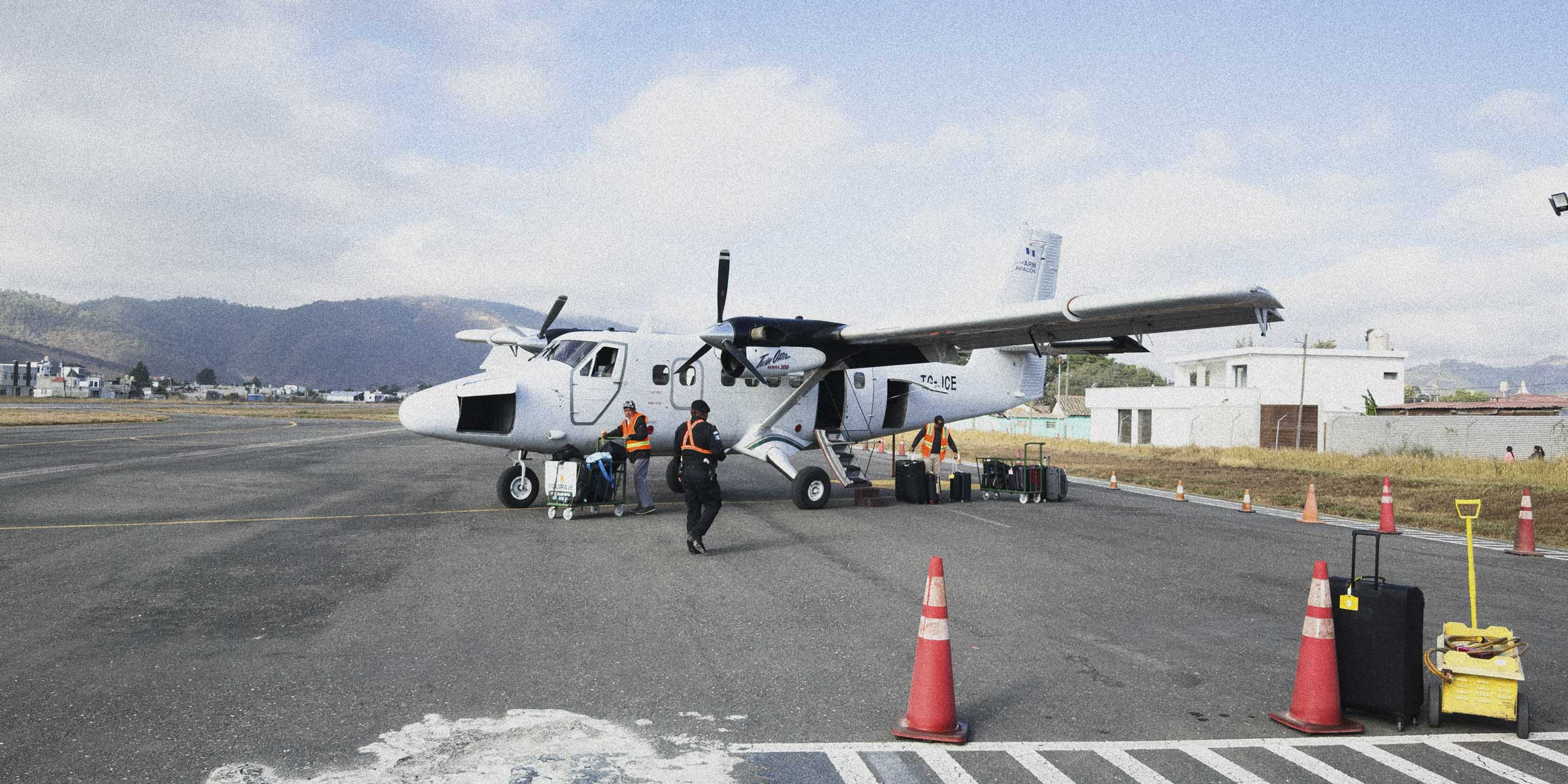Producer Profiles Main Page •
Back to Producers OverviewThe Alma Project: Supporting Coffee Families in Huehuetenango, Guatemala
We've been buying coffee from Onyx Coffee in Guatemala for as long as I can remember. Over the years, we've experienced two origin trips with them, and while we haven't had the chance to meet everyone involved in the Alma project in person, Edwin and I have built a great rapport. Supporting programs he cares about just makes sense.
The Alma project isn't about one farm or one family. It's about a network of coffee-growing families across Guatemala's highlands, brought together by a shared commitment to quality and community. Edwin Martinez, the third-generation coffee producer who leads this work, grew up spending holidays at his family's farm in Huehuetenango. His grandfather, Don Felipe, founded Finca Vista Hermosa back in 1957, when roads in that part of San Pedro Necta were scarce and most folks didn't have electricity. After picking his coffee, Felipe would rent time on a neighboring wet mill and sleep on the drying patio to guard his harvest.
Building Bridges Between Farmers and Roasters
About twenty years ago, Edwin had a vision to directly connect smallholder farmers in Guatemala with quality-driven roasters around the world. He understood something fundamental: the traditional commodity market doesn't work for most Guatemalan producers. Too many farmers were operating at a loss, despite growing exceptional coffee in one of the world's most ideal coffee regions.
Through Onyx Coffee, Edwin now works with over forty producing families across Guatemala. The Alma project embodies his philosophy that everything has a home. From the highest-scoring Cup of Excellence submissions to the coffees that score in the low eighties, there's value and a market. Alma focuses specifically on bright, fruited coffees scoring 84.5 and above. The quality control team based in Guatemala meticulously selects for consistent, clean, and lightly fruity profiles from families in Huehuetenango and occasionally other regions like Jalapa.
Coffee with Soul
La Alma means "the soul" in Spanish, and that name isn't just poetic. These are coffees grown by families who've been cultivating in the highlands of Huehuetenango for three generations, working remote mountainsides where hot dry winds from Mexico's Tehuantepec plains create microclimates that allow coffee to grow as high as 6,500 feet. The region's extreme remoteness means nearly every producer processes their own coffee, washing and fermenting the beans for 24 hours before drying them on concrete patios for seven to ten days.
The Martinez family's approach to coffee extends far beyond quality control. Each month, they host agronomist visits at Finca Vista Hermosa for neighboring farmers, some of whom travel hours to learn and improve their own operations. After each harvest, Edwin's father, Don Edwin, leads a small group of doctors, dentists, and veterinarians into the remote highlands to support indigenous communities and their livelihoods.
Impact Beyond the Cup
For every pound of Alma sold, five cents goes directly to Habitat for Humanity Guatemala's Smokeless Stove Program. These aren't small gestures. The clean stoves impact families for decades by dramatically increasing indoor air quality and wood-fuel efficiency while decreasing cooking time. From the 2021 crop alone, Alma sales enabled 42 families to receive new stoves.
The program addresses a serious health crisis. In rural Guatemala, where 90% of families use wood as their main fuel source and more than half the population suffers from respiratory illnesses, these stoves reduce respiratory disease cases by 83% within the first six months. They cut firewood consumption by nearly half, helping tackle deforestation while decreasing household carbon monoxide emissions by 98%.
Families participate in building their own stoves, making adobe blocks that will form the structure. The experience gives them skills they often apply to other home improvements. It's community development that starts with coffee but reaches much further.
Why We Keep Coming Back
What makes partnering with the Alma project special is the same thing that makes Edwin and his team special. They're not just importers or quality control managers. They're farmers themselves who understand the challenges producing families face because they live them. They're bridge builders who've figured out how to create sustainable relationships where everyone in the chain benefits, from the families growing coffee on remote mountainsides to the communities receiving stoves.
The coffee coming through this program is consistently good, meeting specialty standards while staying accessible for everyday drinking. But more than that, buying Alma means supporting a model that proves specialty coffee can function differently than commodity markets. It can value quality at every level, support producer families fairly, and invest in community health at the same time.
That's the kind of partnership worth maintaining, year after year.



